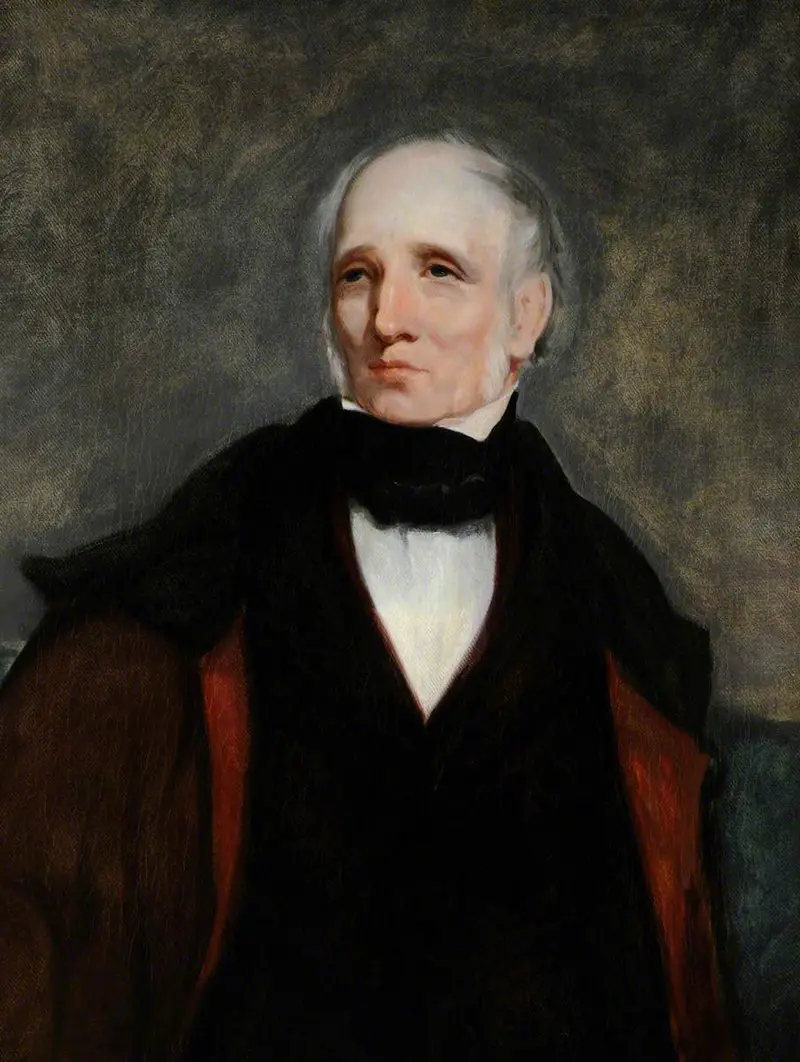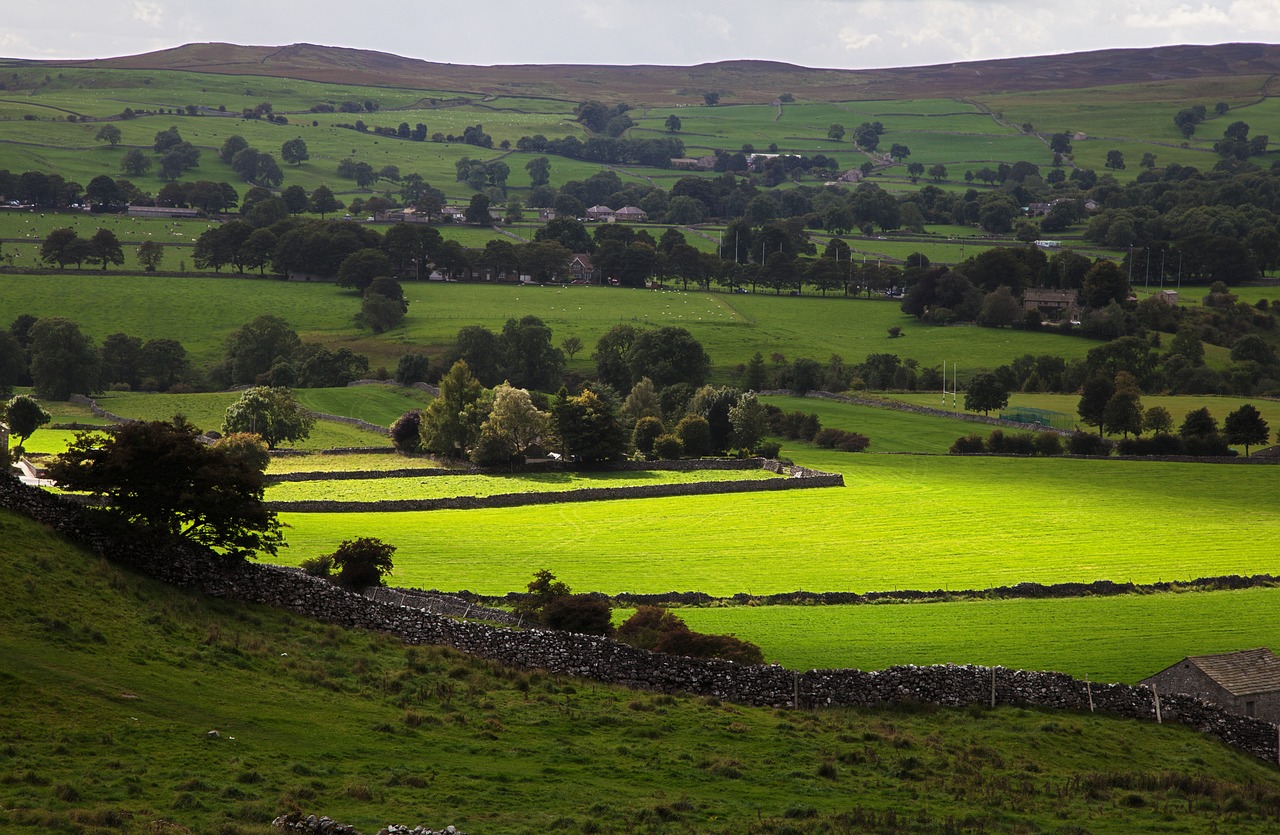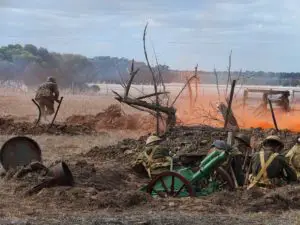
FULL POEM - SCROLL DOWN FOR LINE-BY-LINE ANALYSIS

LINE-BY-LINE ANALYSIS
STANZA 1
I heard a thousand blended notes,
While in a grove I sate reclined,
Wordsworth sets a tranquil scene in this opening stanza, using sensory imagery of the ‘thousand blended notes’ to vividly portray the pleasing harmonies of the surrounding birdsong. The narrator is ‘sate reclined’ in peaceful solitude – a calming albeit isolated, hence potentially depressing, position to find themselves in. The contrast between the sense of unity in nature and the isolation of mankind is thereby evident in this opening couplet.
In that sweet mood when pleasant thoughts
Bring sad thoughts to the mind.
There exists a seemingly unnatural juxtaposition between the narrator’s ‘sweet mood’ that brings them ‘sad thoughts’. As the poem progresses the reader learns that this arises from the realisation of how humanity pales in comparison to the natural world.
STANZA 2
To her fair works did Nature link
The human soul that through me ran;
Wordsworth captures the greatness of Mother Nature through the personification ‘to her fair works’ that highlights the beauty it creates, that extends to the ‘human soul’ which runs through the body like blood, keeping us alive.
And much it grieved my heart to think
What man has made of man.
‘What man has made of man’ is a powerful, emotive statement, commentating on the widespread inhumane actions of mankind, to conclude this stanza. Its poignancy is heightened by the finality created by the ensuing caesura (the full stop marking the stanza’s conclusion). Such actions need not be specified, Wordsworth expects the reader to be well aware of the evils committed by humanity especially considering the poem’s coincidence with the French Revolution which involved France declaring war on Great Britain in 1793.
STANZA 3
Through primrose tufts, in that green bower,
The periwinkle trailed its wreaths;
In this stanza, Wordsworth paints a majestically layered image of the surrounding nature that serves to convey its splendour.
And ’tis my faith that every flower
Enjoys the air it breathes.
The personification of the flowers’ breathing elevates them to human status, such that the narrator views them as no less significant than fellow humans. The fact the narrator perceives them to ‘enjoy the air’ they breathe describes how the natural world is content with its existence, unlike mankind whose selfish dissatisfaction results in the hate and conflict that Romantic poets including Wordsworth condemn. The narrator referencing his ‘faith’ in the natural world highlights the divine relationship between God and nature, one that is of greater integrity than that between God and mankind.
STANZA 4
The birds around me hopped and played,
Their thoughts I cannot measure:—
‘Their thoughts I cannot measure’ describes the disconnect the narrator experiences between themselves and the surrounding natural world. This results from mankind’s alienation from religion which extends to God and nature which remain intertwined.
But the least motion which they made
It seemed a thrill of pleasure.
‘A thrill of pleasure’ is a scintillating phrase that, in hyperbolic fashion, emphasises the sheer satisfaction that the narrator garners from observing the birdlife around him, attempting to immerse themself in the natural world, despite its aforementioned disconnect with mankind.
STANZA 5
The budding twigs spread out their fan,
To catch the breezy air;
And I must think, do all I can,
That there was pleasure there.
In this stanza, the narrator further illustrates the pleasant behaviour of the natural world, with the ‘twigs’ and ‘breezy air’ interacting harmoniously. The final couplet of this stanza replicates that of two stanzas prior. The repetition of such sentiments emphasise the disconnect between mankind, the narrator, and nature – the narrator ‘must think, do all [they] can’ and ‘have faith’ to empathise with the emotions of the natural world – it doesn’t come naturally.
STANZA 6
If this belief from heaven be sent,
If such be Nature’s holy plan,
Wordsworth further solidifies the relationship between God and Mother Nature, the latter a physical manifestation of the former. The word ‘if’ commencing both lines creates a sense of uncertainty, reflecting the extent to which the narrator feels humanity is removed from ‘Nature’s holy plan’.
Have I not reason to lament
What man has made of man?
The poem concludes with this rhetorical question in which the morality of humanity is brought under scrutiny. ‘What man has made of man’ is a refrain, repeated from the second stanza, ending on an emotive tone which leaves the reader questioning the behaviour of themselves and those around them.


